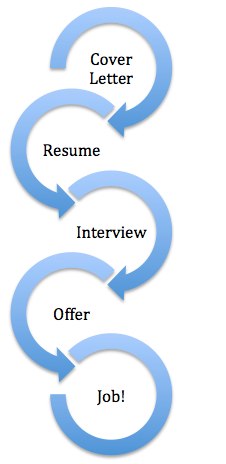Some of the most frantic questions I receive are related to job postings that ask for "salary history" or "salary requirement".

How much you earn is very personal. I completely understand why people are nervous about sharing their salary information. It should feel very un-natural to say (or write) how much you money you make.
But sharing your salary information is an important part of the recruiting and selection process.
Let's review how to provide your salary information.
The best way is to include it in your cover letter. Your cover letter can be a separate document, an e-mail, or in an online form. Simply add these sentences:
My current salary is $25,000 per year. I am currently interviewing for positions in the same range.
That's it. Of course, you can change that sentence to make it more applicable to your match your compensation. If you work less than full-time you may wish to reference your hourly rate rather than an annual salary. If commissions or incentives make up a significant portion of your pay, you should list your typical annual earnings, and write:
My expected salary and commission earnings this year are $25,000. I am currently interviewing for positions in the same range.
If you are currently not working. You can change "current" to "previous".
Don't get hung up on sending more than that. Hiring managers and recruiters want your salary information for two primary reason:
- To determine that you are "in the ballpark". If the position pays an annual salary of $25,000 and you have been making $50,000 you are probably not in the ballpark.
- To compare apple to apples. Job titles can often be so vague that hiring managers have a difficult time determining what your skill level really is. For instance, an Account Manager can mean something completely different from company to company.
Separately, if you advance through the selection process, you will likely have to share your actual salary history. Although this typically happens on an employment application, you may be asked to provide it alongside an application. If so, a simple one-page document (use your resume header) listing your positions, dates of employment, and ending salaries will suffice. But there is no need to provide that level of detail when you're first applying for a position.




 Your resume has one job: to get you an interview.
This is why you don't need an objective on your resume. Your objective is to get an interview.
Your resume has one job: to get you an interview.
This is why you don't need an objective on your resume. Your objective is to get an interview.

 A resume by any other name is still a resume. Even if it's the dreaded résumé or, worse, resumé. I'd rather you call it a curriculum vitae, even though 99.99% of curriculum vitaes are really just resumes.
So, what's the correct way to spell it?
A resume by any other name is still a resume. Even if it's the dreaded résumé or, worse, resumé. I'd rather you call it a curriculum vitae, even though 99.99% of curriculum vitaes are really just resumes.
So, what's the correct way to spell it?


A job fair can be an effective way to meet hiring managers and recruiters in your community and learn about many job opportunities in one day. If you are prepared and use your time wisely, you can walk away with many strong job leads. Many job seekers make careless mistakes that can hurt their chances of success at a job fair. Here are 16 simple tips to make your next job fair a success.